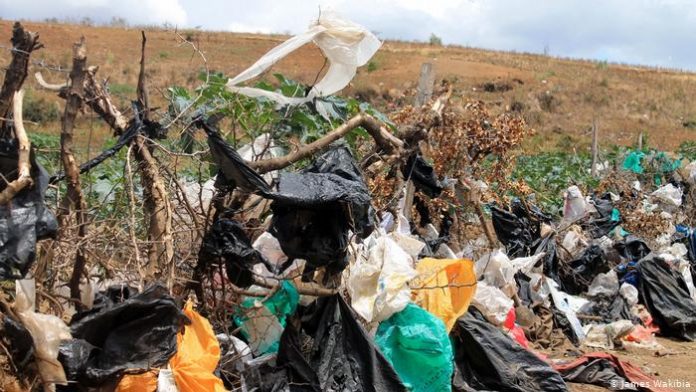By Amos Wemanya
Two years ago Kenya banned the use, manufacture and sale of environmentally harmful single-use plastic carrier bags. This year during the commemoration of the World Environment Day, President Uhuru Kenyatta banned the use of single-use plastics in protected areas which covers national parks, forests, and beaches.
The ban becomes effective on June 5, 2020. This is a good move and Kenya seems to be moving in the right direction to protect the environment. However, the President’s orders might be hard to implement without proper legislative frameworks and regulations.
Studies show that plastic bags and plastic containers can take up to a thousand years to decompose, causing threats to wildlife, people and the environment. Marine species of all sizes, from zooplankton to whales, have been affected by plastic pollution. Plastic also attracts and concentrates other pollutants from surrounding seawater, posing a contamination risk. Scientists are studying the impacts of that contamination on fish as well as the possible impact it may have on human health.
Research reports such as the United Nations Environment Programme’s 2018 report on single-use plastics indicate that the production of plastic has outpaced that of every other material. Much of the plastic is designed to be thrown away within a few minutes of its first use. Plastics produced on land end up is the oceans forming marine debris. To deal with the marine plastic pollution problem, production and use of plastics on land need to be dealt with.
The plastic industry has proclaimed for a long time, the false solutions for recycling. However, the real problem is the production of single-use plastics. Production of single-use plastic items such as carrier bags and polythene terephthalate (PET) bottles is a bad idea. Recycling single-use plastics encourages consumers to buy and hurl more plastic instead of reusing items. Thus, recycling will never solve the problem.



